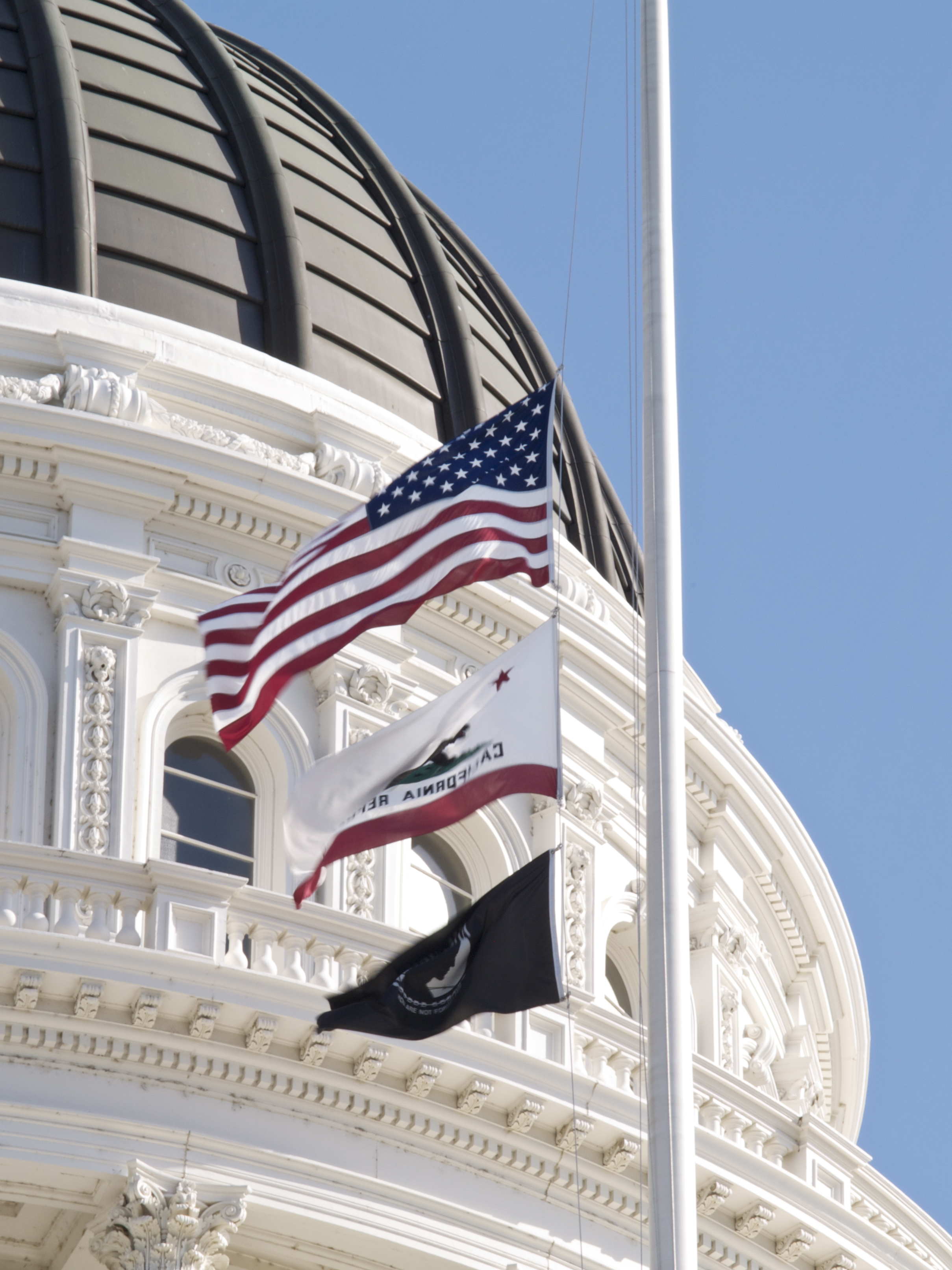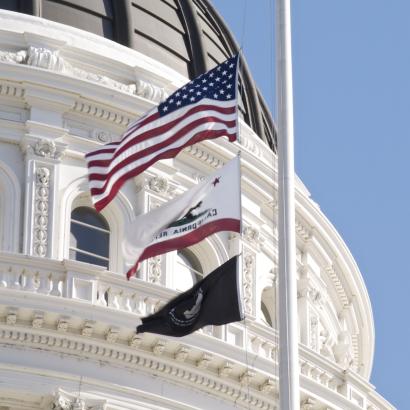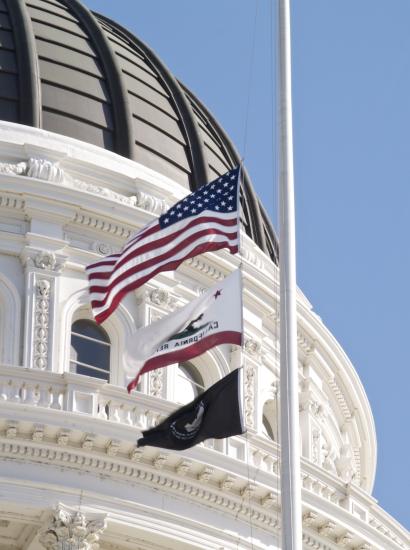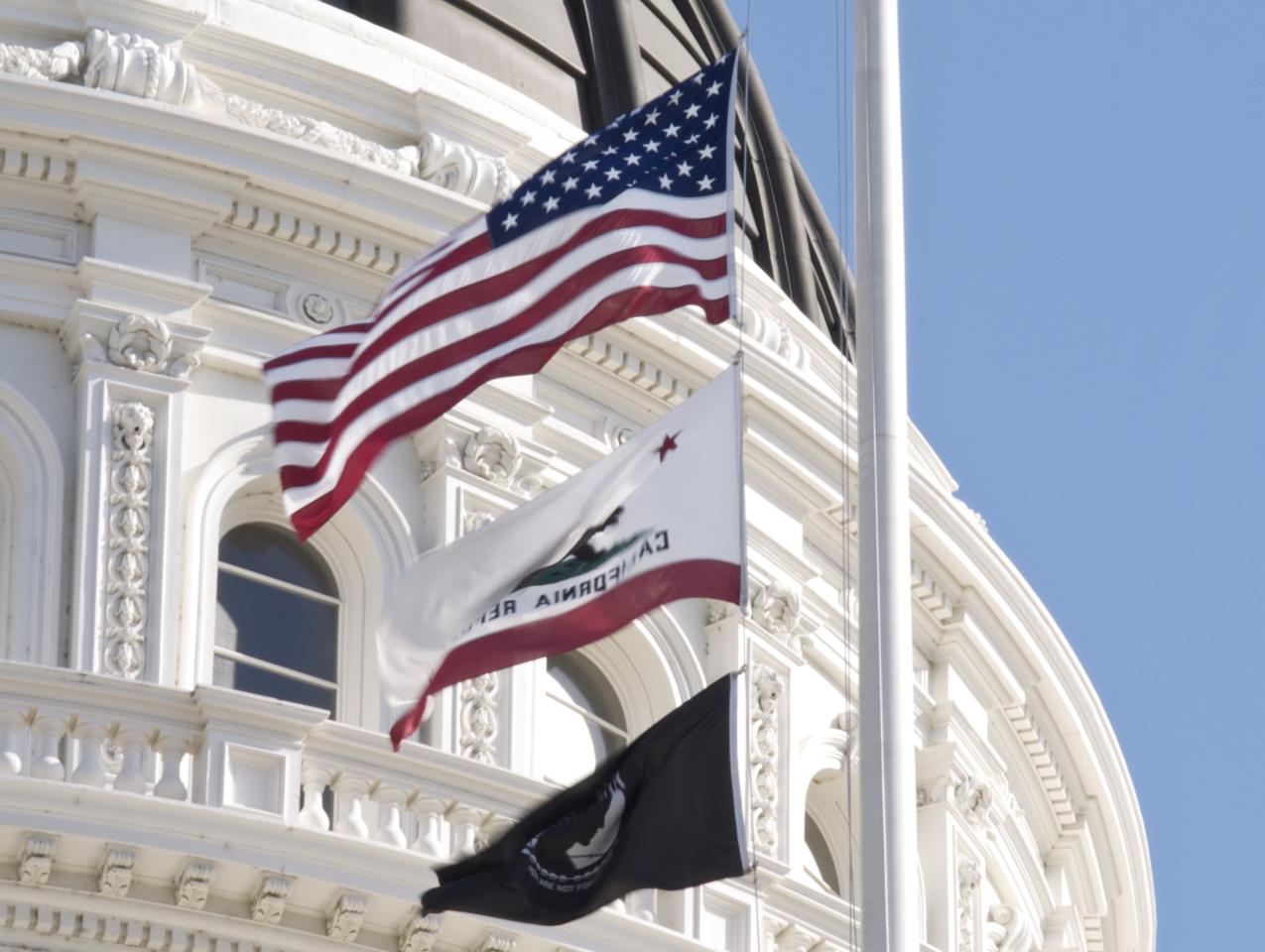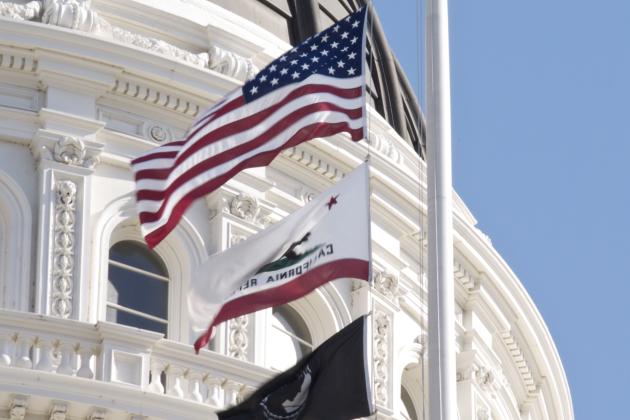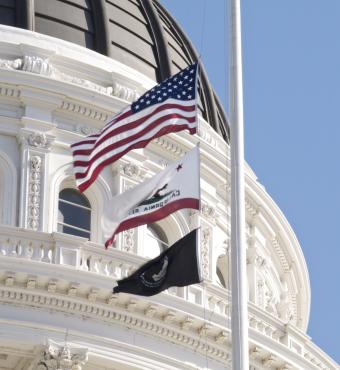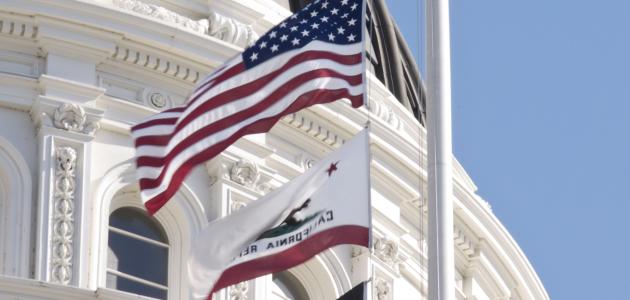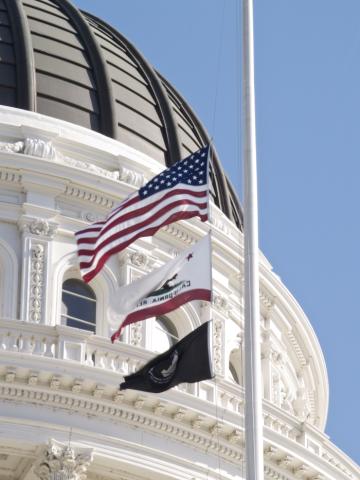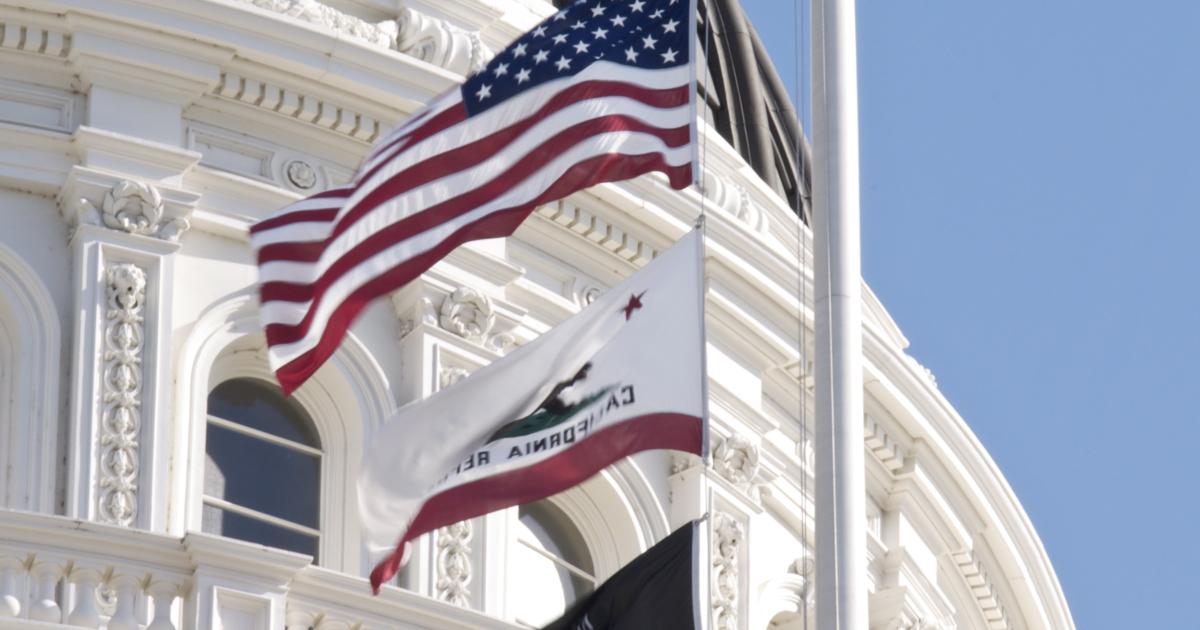- Politics, Institutions, and Public Opinion
- Campaigns & Elections
- State & Local
- California
California’s governor is an elected official—as such, not to be confused with a monarch. But when facing a recall election and serving as the Golden State’s chief executive, it’s good to be the king, as it were.
Case in point: Netflix CEO Reed Hastings donating $3 million to Gov. Gavin Newsom’s anti-recall effort.
It’s perfectly allowable under California law (unlike a regular election, a governor who happens to be the subject of a recall doesn’t have to comply with spending limits—for gubernatorial elections, ordinarily $32,400 per person or entity).
The generous donation is also something of a political double-take.
In 2018, Reed was one of several prominent charter-school advocates who poured millions of dollars into an independent effort boosting former Los Angeles mayor Antonio Villaraigosa—at the time, the most prominent Democrat other than Newsom in California’s open gubernatorial primary (Villaraigosa finished a distant third behind Newsom and Republican businessman John Cox and didn’t advance to the general election).
Why is Hastings now in Newsom’s corner?
My guess—and it’s a cynical one: to ensure a seat at the table come future education decisions.
A look at the lineup of anti-recall supporters—i.e., they’re pro-Newsom—shows union power in full force. That includes a $250,000 donation from a union representing approximately 11,000 state engineers, plus California’s largest health care workers’ union chipping in $100,000 to its own anti-recall effort as well as launching a statewide digital media campaign.
I’m not an engineer, but I believe I can make sense of the political schematics. At some point, the California Teachers Association (CTA) and other deep-pocketed teachers’ unions will chip in to Newsom’s defense. If I’m Reed Hastings and concerned about charter schools being in those unions’ crosshairs should a reprieved Newsom face pressure to deliver a “quid” for the unions’ financial “quo,” then that $3 million isn’t so much a donation to the governor’s survival as it is an insurance policy against harmful educational decisions to come in Sacramento.
There’s another, less cynical way to view Hastings’s embrace of Newsom: there may not be a meaningful Democrat—i.e., a rival of Villaraigosa’s stature—in the recall field.
Why does this matter?
First, the lack of Democratic competition allows Newsom to continue the narrative that the pro-recall side is ideologically tilted to a starboard extreme (as the governor’s campaign describes it: “a partisan, Republican coalition of anti-maskers, anti-vaxxers, QAnon conspiracy theorists and Trump supporters”).
Second, the lack of a prominent intraparty rival potentially affects the recall vote itself.
In 2003, with the recall of then governor Gray Davis, there was a notable California Democrat on the ballot: then lieutenant governor Cruz Bustamante. Opinions differ as to Bustamante’s impact on the final outcome (he finished second in the field with almost 31.5% of the vote, some 17 points behind Arnold Schwarzenegger). I recently did a podcast with a Schwarzenegger recall advisor during which I asked if the lieutenant governor helped pave the way for Arnold’s victory. The advisor’s answer: kinda/sorta in that having a big-name Democrat in the race made it easier for voters to opt for Davis’s removal on the first of the two recall questions (the second question being to name the governor’s replacement).
But that’s not the case (for now) in a potential 2021 recall vote, which is one reason for Newsom to smile—well, that and this recent Berkeley IGS poll showing that only 36% of registered California voters want to recall the governor (also good news for Newsom: fewer than half of voters (46%) expressed high levels of interest in the recall).
However, the same poll contained a potential headache for Newsom and a state party trying to keep fellow Democrats off the recall ballot: a near-majority of Democrat voters surveyed (48%) said they’d like a prominent Democrat among the replacement candidates appearing on the recall ballot, versus 29% of Democrats who don’t want to see an alternative from their party (23% were undecided).
Here, Newsom may turn out to be blessed by good timing—in 2021, a lack of high-statured individuals looming over the recall.
In 2003, Gray Davis faced two potential threats to his rule. One of those threats materialized (Schwarzenegger). The one that didn’t? That would be Sen. Dianne Feinstein, who waited until the eve of the filing deadline to formally take herself out of the running, at which point Schwarzenegger jumped in.
But Feinstein is not the same political force she was back in 2003. A Berkeley IGS poll from earlier in May shows Feinstein, at age 87 the nation’s oldest US senator (she turns 88 in June), with a mere 35% approval and suffering his highest disapproval rating (46%) since she took office nearly three decades ago.
Moreover, Feinstein’s colleagues don’t seem much interested in the concept of Democratic “ballot insurance”—i.e., having a Democrat on the ballot in case the unimaginable happens and a majority of voters opt to recall Newsom.
Back in 2003, some prominent California Democrats—most notably, former senator Barbara Boxer (Kamala Harris’s Senate predecessor) and Rep. Loretta Sanchez (in 2016, she lost to Harris in what turned out to be a dreadfully dull contest to replace Boxer)—espoused the need for such ballot “insurance.”
But in 2021, there is no cautionary voice coming from within the Democratic ranks, nor a prominent Democrat or left-of-center independent willing to step in as a safe alternative for progressives (as the columnist and radio host Hugh Hewitt noted, “No one wants to show their dagger before Caesar reaches the forum”).
But Caesar was the victim of a conspiring senators. If there’s any such cabal underway in Sacramento, it’s a well-kept secret. Moreover, while Newsom isn’t a political dynast (though there is an interwoven, almost inbred quality to San Francisco–groomed politicians), he does have some imperial qualities working to his advantage, beginning with the power to punish irritants (veto bills; say no to spending suggestions, appointments, and executive orders).
Another possible reason for Democratic hesitancy: Newsom would be a prohibitive re-election favorite in 2022, assuming he survives the recall challenge. Thus any gubernatorial grudge could play out not for months but years.
Meanwhile, keep an eye out for one more recall wrinkle: when California’s lieutenant governor announces the election date.
Under California law, the “lite guv” can set that date anywhere from 60 to 80 days after the secretary of state has certified that the recall has officially qualified. In 2003, Bustamante selected the last possible date allowed, which happened to be the first Tuesday in October—some 76 days after the certification.
What that decision meant, 18 years ago, was that Schwarzenegger, Feinstein, and other would-be recall candidates had two and a half weeks to mull a run (under California law, a candidate must declare and file paperwork no later than 59 days before the recall vote).
If Eleni Kounalakis, the current lieutenant governor, sets the recall vote for 60 days after certification, that likely adds to the pressure to keep other Democrats from running, as they’d have only 24 hours to make up their minds. Nor would the accelerated election date come as much of a surprise, as some legislative Democrats are suggesting the election should be held sooner rather than later.
That’s assuming Newsom remains on his current good-news glide path of billions of dollars to hand out to voters and a return to a life more pre-COVID ordinary following California’s anticipated June 15 reopening.
The Ides of June for Newsom?
Presumably, a lot less painful and more career enhancing than Caesar’s March experience.







